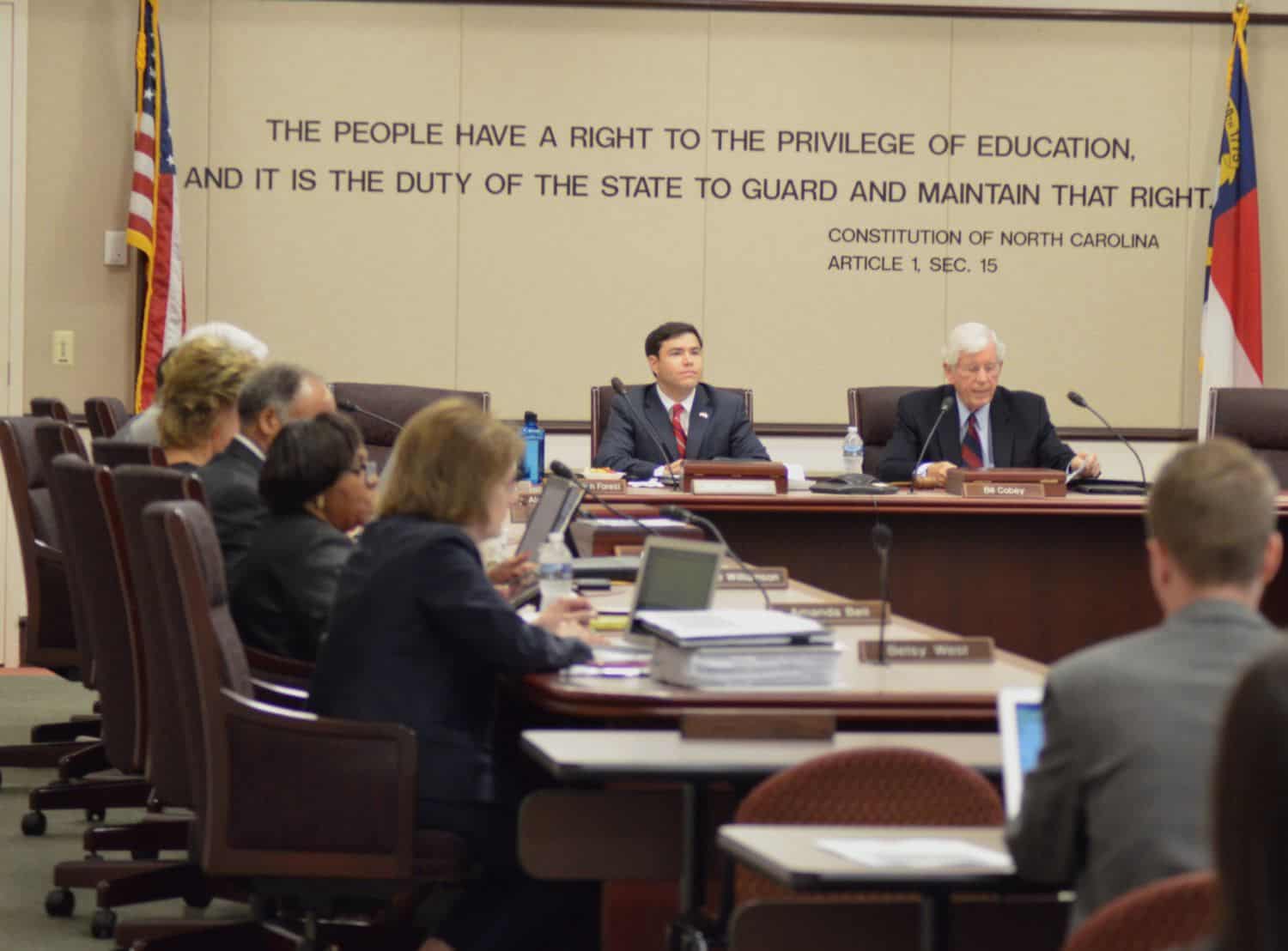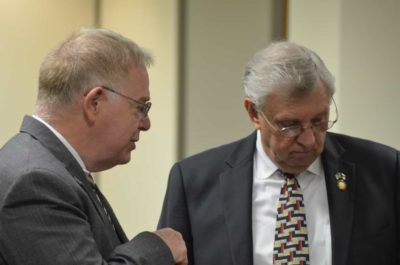The State Board of Education voted unanimously to revoke the charter of Heritage Collegiate Leadership Academy today. The school is expected to appeal the decision.
“It’s always a sad day when we have to close a school,” said State Board Chair Bill Cobey.
On Heritage Collegiate’s Facebook page, Kashi Hall, founding director of Heritage Collegiate, wrote about today’s State Board meeting prior to the vote, and implied that the school might turn private in order to survive.
“Today the State Board of Education will vote on the fate of our school. This whole experience has shaken my faith in state government and the political process, but my faith in The Most High is as solid as ever. Regardless of their vote, we take comfort in knowing that we have made a difference in our community. We are committed to stay even if we have to become an independent, private school seeking eligibility for opportunity scholarships,” she wrote.
She went on to discuss next steps for the school.
“If the SBE votes to revoke our charter today, I will immediately appeal their decision with the Office of Administrative Hearings. We will also contact the Office of Civil Rights to file a complaint in the way minority charter leaders are treated as part of this process. We are prepared to take this fight to court. Hi Haters! This is far, far from over,” she wrote.
The troubled school was taken to task by the Charter School Advisory Board (CSAB) multiple times in the last year. The board almost recommended revocation of the school’s charter in June, but voted instead to set a list of stipulations which, if not met, would lead to revocation proceedings.
“We have seen a pattern of failure to comply with some of the stipulations,” Charter School Advisory Board Chair Alex Quigley told the State Board today.
He noted, in particular, the school had failed to meet deadlines to get information into the state, and it had even failed to submit on time its notice that it wanted to renew its charter.
“I believe they were the only school to miss that deadline,” he said.
He also said the school had over projected its enrollment for this year, and, as a result, had spent its state allotted money for its actual enrollment with more than a month to go before more funds would arrive. The school projected it would have an average daily membership of 340 students and ended up with an unofficial count of 177 instead.
Heritage opened in 2014 and was labeled as low-performing by the state in 2015 and 2016. At the June CASB meeting, the board discussed problems with the school, including missing deadlines to submit audits, operating close to a financial deficit, and having a ratio of teachers versus other personnel at the school that disproportionate compared to similar schools.
The stipulations imposed by the board in June included that the school needed to complete its reporting requirements on deadline and needed to either add more board members to its governing board to meet statutory requirements or dissolve its board. The school had to also submit monthly budgetary and financial data, meet with the Charter School Advisory Board two more times, and reconcile its payroll information so that it was clear how many employees it actually had, as opposed to the number listed in its payroll.
“We decided we would give this school the opportunity to correct these issues,” Quigley told the State Board.
In October, the school went before the board again, but its problems persisted. At that meeting, the Charter Advisory Board voted unanimously to recommend charter revocation to the State Board.
Cobey said he had been optimistic about the school previously.
“I personally had high hopes for it because it’s in a rural county…and we don’t have enough public charter schools out in rural areas,” he said. “But the facts are the facts.”
Board member Becky Taylor said the Charter School Advisory Board has been considering what to do with this school for months. It examined the issue carefully, she said.
“This was not a really quick reaction,” she said.
Cobey praised the Charter School Advisory Board for its work with the school and for providing the state with the recommendation. He asked Quigley when the school could be expected to actually close. Quigley said that, given the fact the school is likely to appeal, it is hard to predict, but he did not think it would close before the end of the school year.



